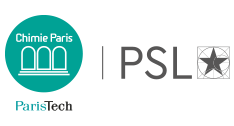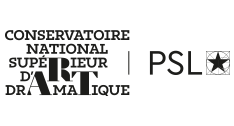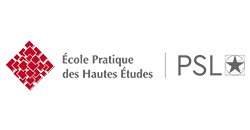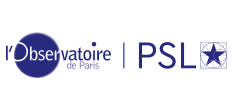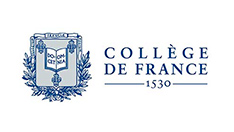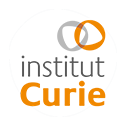Junior Professor Chair (tenure track position) in Electrochemistry for CO2 capture, storage and recovery (F/M)
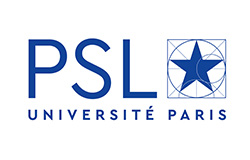
Working environment and context
Hosting structure
Wholly committed to excellence in education, training and research, PSL is a global university, which aims to reflect, represent and influence society today and the world of the future in all its diversity.
The university’s collegial ethos is a major asset.
Made up of eleven component institutions, including Paris Dauphine-PSL, PSL ensures that dialogue takes place between all areas of knowledge, innovation and creativity in science, humanities, social sciences, arts and engineering. PSL offers an education led by the research carried out in its laboratories while encouraging discussion and mobility between disciplines and across schools.
Our university exercises critical thinking and fosters creativity. Students are selected on the basis of their potential and talent.
The university champions equal opportunities and promotes social, cultural and geographic diversity, and students are guaranteed individual mentoring, small class sizes and personalized academic pathways
PSL University is launching a call for applications for a Chaire Junior in “Electrochemistry for CO2 capture, storage and recovery”.
The activity will take place at ESPCI Paris – PSL.
This is a tenure track position with a reduced teaching load, leading to a full professorship at the end of the 6-year period. The position can be taken up from the end of 2024 or at a mutually agreed date.
Mission
Sciences for a Sustainable World degree
The teaching profile is designed to fill a gap in the "Sciences for a Sustainable World" degree. The Junior Professor recruited will reinforce the teaching of physical chemistry by focusing more closely on the fundamentals of electrochemistry, a subject of prime importance in the context of the electrification of energy storage and production.
The annual hourly teaching load will be 64h during the years of the Chair.
The aim will be to renew teaching on the fundamentals of electrochemistry, as well as on the applications of electrochemistry to hydrogen production and energy storage. The junior lecturer will take over the entire course and introduce practical sessions.
The teaching project will also include the organization of a "PSL Week" on the ecological transition. PSL Weeks are open to students from PSL University, whatever their original course of study; they enable them to open up to other fields of expertise and personalize their career path. Last but not least, we'll be taking part in the supervision of team-based scientific projects at ESPCI Paris in the field of ecological transition. These projects enable students to make the link between the concepts learned in class and the ecological transition.
Eventually, the professor will move into teaching at ESPCI Paris PSL, and will be responsible for internship evaluation and follow-up, for a total of 57 hours. The total teaching load will be 192 hours. This will be supplemented by courses in electrochemistry and practical work in electrochemistry.
corinne.soulie@espci.psl.euInformations - Recherche
Laboratoire CBI (Chemistry Biology Innovation)
The junior professor will carry out his or her research work in the CBI (Chemistry Biology Innovation) laboratory, a joint ESPCI Paris-PSL / CNRS (UMR 8231) research unit, as part of the MIE team.
The CBI laboratory is an internationally renowned laboratory specializing in the fields of health, microfluidics, analytical chemistry and soft matter. It comprises 37 permanent staff. It has decided to strengthen its field of application by creating the "Materials for Energy (MIE)" team. This team comprises a Professor and a Senior Lecturer.
The junior professor will reinforce this team, whose research focuses on blue energy, microfluidics and materials.
The project will focus on the use of electrochemical techniques to meet the challenges of the ecological transition. To stay below an average global warming of 2°C compared with the pre-industrial period, we need to divide our current CO2 emissions by 3.5. To cope with irreducible emissions (from agriculture, transport and industry), the IPCC also recommends removing 2 to 20 gigatons of CO2 per year from the atmosphere through human intervention. At present, these technologies are in their infancy. The project will focus on the development of new low-energy, low-temperature, low-pressure processes for CO2 capture, recovery and storage. Processes for the direct capture of CO2 from the air face a major difficulty: a solvent that easily recovers large quantities of CO2 has difficulty releasing it.
In this context, it is possible to use the oceans as a CO2 sponge, without worrying about capture mechanisms, and try to recover the CO2. Methods for removing CO2 from seawater generally rely on adjusting the pH of the water from around 8.1 to below 7 to ensure that the speciation of dissolved inorganic carbon (DIC) from carbonates and bicarbonates is transformed into molecular CO2, which can then be extracted under vacuum. It is desirable to identify approaches that do not require the addition of chemicals and do not lead to spurious reactions with the formation of undesirable compounds. In this context, electrochemistry appears to be a major technique. Processes based on this technology are in their infancy. We need to think about how to make them more efficient and profitable.
This involves thinking in physical terms about how to manage reactive flows, and how to measure, optimize and control small-scale transport phenomena. A project involving the implementation of such a process and the construction of an efficient reactor is an example of an expected project. This could involve innovative, compartmentalized electrochemical devices that minimize concentration polarization. The valorization of captured CO2 is a crucial issue.
Beyond the development of catalysts for CO2 reduction, the industrialization of synthetic photosynthesis processes is hampered by the need to set up high-performance photo reactors.
Projects inspired by the world of living organisms, based on synthetic photosynthesis and process development, will be appreciated.
annie.colin@espci.psl.euNon-discrimination, openness and transparency
PSL University is committed to supporting and promoting equality, diversity and inclusion within its communities. We encourage applications from diverse profiles and we ensure to we will select via an open and transparent recruitment process.
University is an equal opportunity employer.
Contact
https://galaxie.enseignementsup-recherche.gouv.fr/antares/can/can01.jsp?mode=create&acs=can
Fiche de poste CPJ ESPCI
Other information
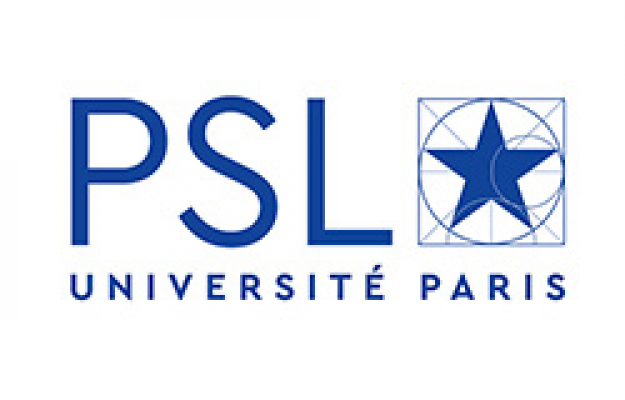
Junior Professor Chair (tenure track position) in Electrochemistry for CO2 capture, storage and recovery (F/H)
| Hiring date From december 2024 | Location Université Paris Dauphine - PSL 75016 |
|---|---|
| School PSL |
Working environment and context
Hosting structure
Wholly committed to excellence in education, training and research, PSL is a global university, which aims to reflect, represent and influence society today and the world of the future in all its diversity.
The university’s collegial ethos is a major asset.
Made up of eleven component institutions, including Paris Dauphine-PSL, PSL ensures that dialogue takes place between all areas of knowledge, innovation and creativity in science, humanities, social sciences, arts and engineering. PSL offers an education led by the research carried out in its laboratories while encouraging discussion and mobility between disciplines and across schools.
Our university exercises critical thinking and fosters creativity. Students are selected on the basis of their potential and talent.
The university champions equal opportunities and promotes social, cultural and geographic diversity, and students are guaranteed individual mentoring, small class sizes and personalized academic pathways
PSL University is launching a call for applications for a Chaire Junior in “Electrochemistry for CO2 capture, storage and recovery”.
The activity will take place at ESPCI Paris – PSL.
This is a tenure track position with a reduced teaching load, leading to a full professorship at the end of the 6-year period. The position can be taken up from the end of 2024 or at a mutually agreed date.
Teaching mission
Sciences for a Sustainable World degree
The teaching profile is designed to fill a gap in the "Sciences for a Sustainable World" degree. The Junior Professor recruited will reinforce the teaching of physical chemistry by focusing more closely on the fundamentals of electrochemistry, a subject of prime importance in the context of the electrification of energy storage and production.
The annual hourly teaching load will be 64h during the years of the Chair.
The aim will be to renew teaching on the fundamentals of electrochemistry, as well as on the applications of electrochemistry to hydrogen production and energy storage. The junior lecturer will take over the entire course and introduce practical sessions.
The teaching project will also include the organization of a "PSL Week" on the ecological transition. PSL Weeks are open to students from PSL University, whatever their original course of study; they enable them to open up to other fields of expertise and personalize their career path. Last but not least, we'll be taking part in the supervision of team-based scientific projects at ESPCI Paris in the field of ecological transition. These projects enable students to make the link between the concepts learned in class and the ecological transition.
Eventually, the professor will move into teaching at ESPCI Paris PSL, and will be responsible for internship evaluation and follow-up, for a total of 57 hours. The total teaching load will be 192 hours. This will be supplemented by courses in electrochemistry and practical work in electrochemistry.
corinne.soulie@espci.psl.euResearch mission
Laboratoire CBI (Chemistry Biology Innovation)
The junior professor will carry out his or her research work in the CBI (Chemistry Biology Innovation) laboratory, a joint ESPCI Paris-PSL / CNRS (UMR 8231) research unit, as part of the MIE team.
The CBI laboratory is an internationally renowned laboratory specializing in the fields of health, microfluidics, analytical chemistry and soft matter. It comprises 37 permanent staff. It has decided to strengthen its field of application by creating the "Materials for Energy (MIE)" team. This team comprises a Professor and a Senior Lecturer.
The junior professor will reinforce this team, whose research focuses on blue energy, microfluidics and materials.
The project will focus on the use of electrochemical techniques to meet the challenges of the ecological transition. To stay below an average global warming of 2°C compared with the pre-industrial period, we need to divide our current CO2 emissions by 3.5. To cope with irreducible emissions (from agriculture, transport and industry), the IPCC also recommends removing 2 to 20 gigatons of CO2 per year from the atmosphere through human intervention. At present, these technologies are in their infancy. The project will focus on the development of new low-energy, low-temperature, low-pressure processes for CO2 capture, recovery and storage. Processes for the direct capture of CO2 from the air face a major difficulty: a solvent that easily recovers large quantities of CO2 has difficulty releasing it.
In this context, it is possible to use the oceans as a CO2 sponge, without worrying about capture mechanisms, and try to recover the CO2. Methods for removing CO2 from seawater generally rely on adjusting the pH of the water from around 8.1 to below 7 to ensure that the speciation of dissolved inorganic carbon (DIC) from carbonates and bicarbonates is transformed into molecular CO2, which can then be extracted under vacuum. It is desirable to identify approaches that do not require the addition of chemicals and do not lead to spurious reactions with the formation of undesirable compounds. In this context, electrochemistry appears to be a major technique. Processes based on this technology are in their infancy. We need to think about how to make them more efficient and profitable.
This involves thinking in physical terms about how to manage reactive flows, and how to measure, optimize and control small-scale transport phenomena. A project involving the implementation of such a process and the construction of an efficient reactor is an example of an expected project. This could involve innovative, compartmentalized electrochemical devices that minimize concentration polarization. The valorization of captured CO2 is a crucial issue.
Beyond the development of catalysts for CO2 reduction, the industrialization of synthetic photosynthesis processes is hampered by the need to set up high-performance photo reactors.
Projects inspired by the world of living organisms, based on synthetic photosynthesis and process development, will be appreciated.
annie.colin@espci.psl.euNon discrimination, ouverture et transparence
L'Université PSL s’engage à soutenir et promouvoir l’égalité, la diversité et l’inclusion au sein de ses communautés. Nous encourageons les candidatures issues de profils variés, que nous veillerons à sélectionner via un processus de recrutement ouvert et transparent.
Contact
https://galaxie.enseignementsup-recherche.gouv.fr/antares/can/can01.jsp?mode=create&acs=can
Other information
| Experience years
Niveau doctorant (R1) an |
Position open to BOEs | Reference CPJ ESPCI 64 |
|---|
Université PSL (Paris Sciences & Lettres)


